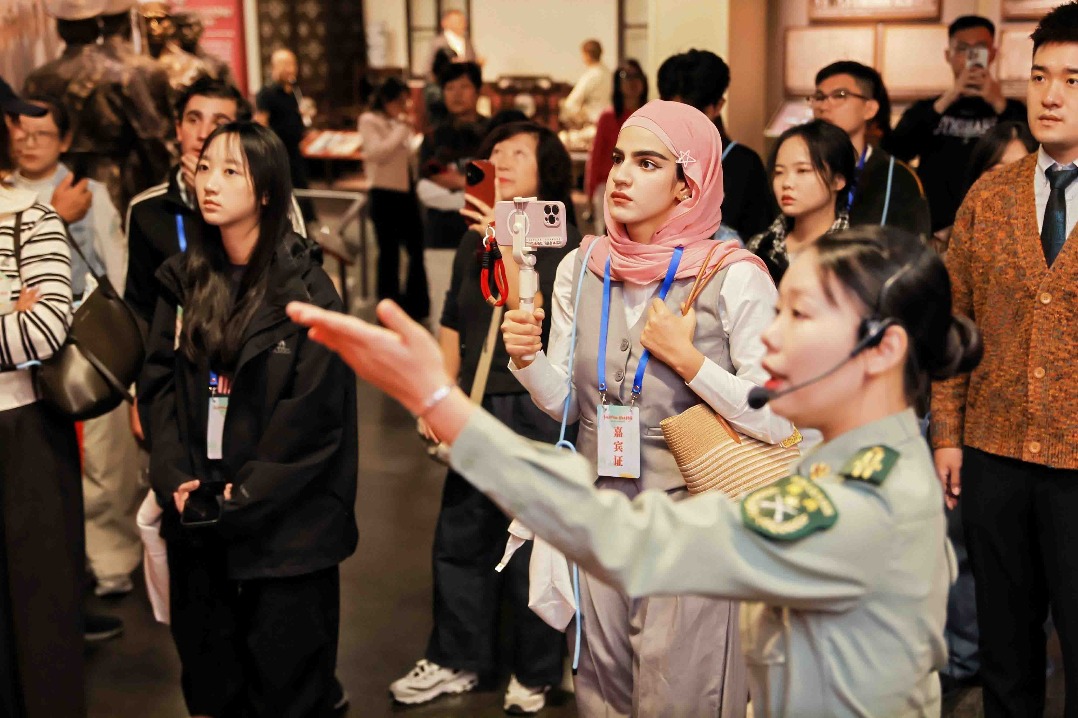Authorities bust ring behind bogus tips on farming

Local authorities in Puyang, Henan province, have launched an investigation into a company accused of using fake agricultural experts on social media platforms to promote and sell substandard agricultural inputs, including pesticides and fertilizers. The move comes after a media report exposed the deceptive practices of a local agricultural company and its network of online marketing.
According to a recent report by China Central Television's business channel, a local company called "Xianghe Agriculture" created hundreds of online accounts featuring people posing as agricultural experts, professors and recent agricultural university graduates, aiming to mislead farmers and sell products made by the company that claimed to boost agricultural production.
These fake experts, who wore shirts bearing the company's logo in their videos, offered advice on farming techniques and promoted products sold through the company's online store. However, farmers who purchased the products reported that they were ineffective and did not live up to the advertised claims.
The "experts" also shared "life hacks" for farming in the short videos, including using household ingredients such as salt, vinegar and beer as pesticides and fertilizers. While originally presented as innovative solutions, the videos often followed a similar script: promoting the cheap "life hacks" only to discredit them later and push the company's own products instead.
Following the report, the local agriculture and rural affairs bureau, the market regulation bureau and public security departments established a joint investigation team, China Media Group reported on Tuesday.
Initial findings led to the investigation of the "Nongduole Agricultural Supply Store", which was associated with "Xianghe Agriculture" in Fanxian county, Puyang. Authorities have seized 1,260 items, shut down one online livestreaming site with five studios and closed 112 irregular accounts. Three people suspected of involvement in the matter have been taken into custody.
The media report revealed that many of the so-called experts had little formal agricultural education or experience. One person identified as Teacher Shi, who presented himself as an expert from an agricultural research institute, was found to be an event host trainer and one of the founders of "Xianghe Agriculture".
Shi admitted that his online persona was entirely fabricated. "It's all fake, all performance," he told CCTV.
A team manager at the livestreaming base of the company said the company prioritized profit over agricultural knowledge and would happily switch to selling other products if agricultural supplies became less lucrative.
The case has sparked controversy about the proliferation of misinformation and deceptive marketing in the agricultural sector, as well as the responsibility of social media platforms to regulate such content.
"Some sellers of products that claimed to be able to boost agricultural production are actually squeezing farmers' profits under the guise of supporting farmers," a netizen commented on Sina Weibo.
"The short video platforms are responsible for supervising these broadcasters who are selling their products," another said.
The Puyang government said in a statement that it would conduct a comprehensive investigation of the agricultural supplies market across the city and strengthen the supervision of the entire supply chain.
zhaoyimeng@chinadaily.com.cn
- CNS Sichuan sets off on maiden sea trial
- Crew of Shenzhou XX returns
- Sports fever sparks spike in tourism in Hong Kong
- Offices boost participation of public in shaping laws
- Gen-Z Taiwan volunteer joins Minqin's desert afforestation efforts
- Over 20 Gen Z foreign guests to explore Baise city in Guangxi



































